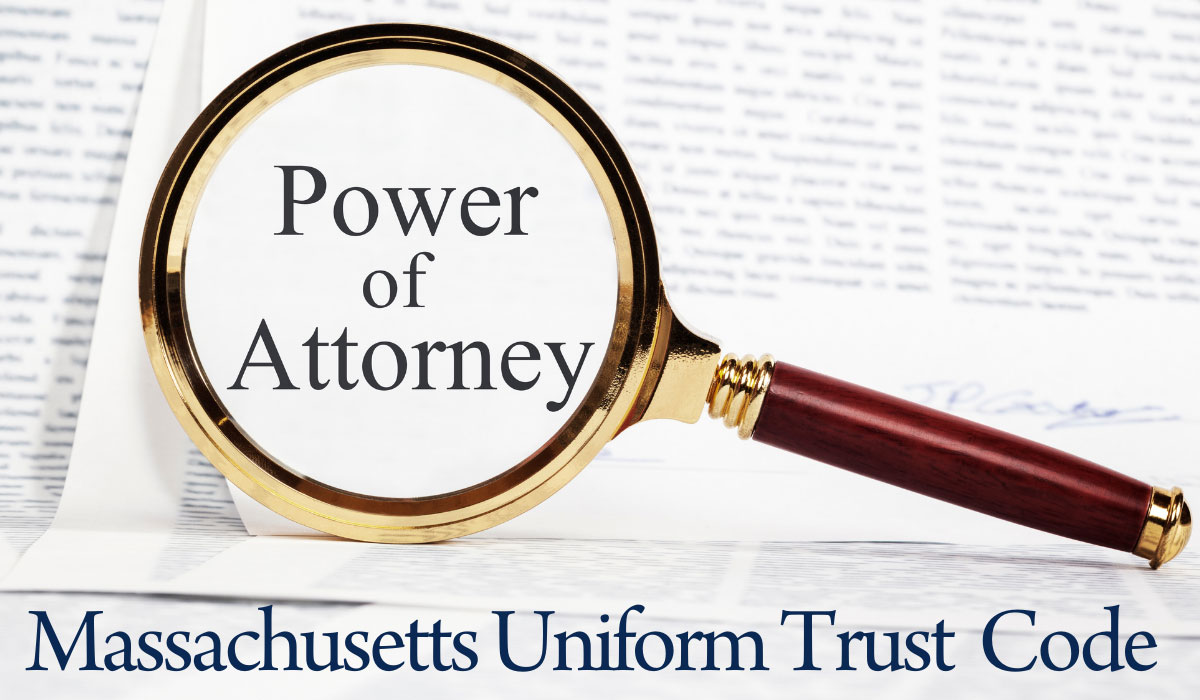A Power of Attorney (“POA”) is an important estate planning tool and legally binding document that gives another person, chosen by you, the power to act as an agent on your behalf. Within the last year, the Massachusetts Supreme Court issued a decision effecting the authority given under a power of attorney in Massachusetts.
In Barbetti v. Stempniewicz, the Court held that a trust was void because it was created by the son of a decedent acting under a Power of Attorney, which did not grant the express authority to create trusts. 490 Mass. 98, (2022). The Court noted that it was a matter of first impression on if a settlor could delegate the power to create a trust on behalf of the settlor to another. Additionally, the Court acknowledged that the Massachusetts Uniform Trust Code (“MUTC”) does not specifically provide whether or not the power to establish a trust is a delegable power. Instead, the MUTC only provides that a “settlor’s powers with respect to revocation, amendment or distribution of trust property may be exercised by an agent under a power of attorney only to the extent expressly authorized by the terms of the trust and the power.” G. L. c. 203E, § 602 (e).
In making its determination, the Court turned to other jurisdictions for guidance and found that states varied on if the authority to create a trust was delegable, some states had adopted the Uniform Power of Attorney Act (the “UPAA”) that specifically allows a principal to authorize an agent to create a trust. Further, the Court concluded that the general weight of authority suggests that the authority to create a trust is delegable only if express authority is given by the POA.
The Court determined that because the POA at issue did not provide express authority to create a trust, the trust was void. In concluding that the Trust was void, the Court avoided deciding the greater issue on if Massachusetts’ law allows for an attorney-in-fact to create a trust document on behalf of a principal under other circumstances. Stating the
egislature is currently considering whether to adopt the Uniform Power of Attorney Act, which would permit an agent acting under a power of attorney to ‘create, amend, revoke, or terminate an inter vivos trust’ on behalf of a settlor ‘only if the power of attorney expressly grants the agent the authority.’ House Bill No. 1598, at 20 (Jan. 22, 2021). Therefore, we conclude that, at this time, the more prudent path is to allow the Legislature the opportunity to decide whether and how to allow delegation of the power to create a trust.
Barbetti v. Stempniewicz, 490 Mass. at 115. Instead, the Court concluded that the POA did not provide express authority to create a trust, and, therefore the trust would be void no matter what as no authority was given under the POA. It has been over two years since the bill was introduced and the UPAA has yet to be enacted in Massachusetts, and the landscape for authority given under a POA remains uncertain. If you have questions or would like further information on POAs in Massachusetts, please contact Attorney Katherine B. Dunn at 401-824-5100 or kdunn@pldolaw.com.


